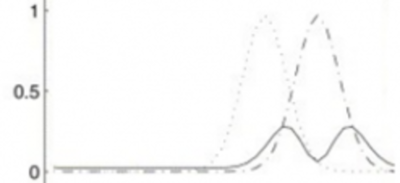Uncertainty Quantification
The non-linear amplification of small errors in the specification of initial conditions, the existence of model inadequacies, and the availability of sparse, noisy measurements place limits on our ability to accurately forecast the atmosphere. Meaningful estimates of the system state and meaningful analysis of model inadequacies necessarily require quantifying the associated uncertainty.
 PAOC researchers develop methods to represent, forecast and infer the uncertainty of model states and parameters for nonlinear, high-dimensional processes, and apply them to numerical weather prediction, adaptive observing systems, chemical transport and climate prediction.
PAOC researchers develop methods to represent, forecast and infer the uncertainty of model states and parameters for nonlinear, high-dimensional processes, and apply them to numerical weather prediction, adaptive observing systems, chemical transport and climate prediction.
The methods we develop require interdisciplinary skill combining stochastic methods with physics-based descriptions of atmospheric processes. Our people and work draw from a broad knowledge-base including the areas of nonlinear dynamics & chaos, estimation, control and optimization, reduced order and multi-scale modelling, stochastic PDEs, machine learning and statistical inference.
The atmospheric applications where our methodology makes its mark includes Mesoscale Data Assimilation for Coherent Structures (fronts, hurricanes etc.), Statistical-Dynamical Downscaling for quantifying regional-scale energy and natural hazard uncertainties, quantifying risk from natural hazards in present and potentially future climates, parametric uncertainty analysis in atmospheric chemistry, and analysis of climate model sensitivities.
Presented below are a list of research groups engaged in these activities. Please feel free to contact one of us to get engaged in this exciting area of research!
